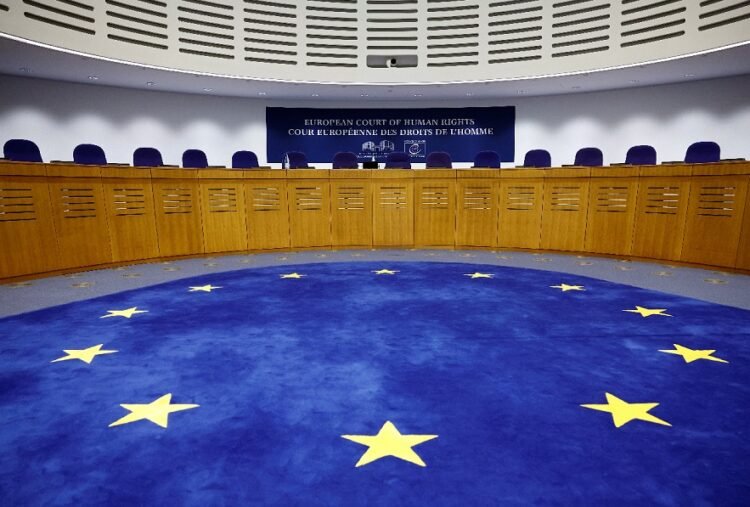In a historic decision, the European Court of Human Rights (ECtHR) has ruled in favor of a group of elderly Swiss women, affirming that the Swiss government’s insufficient actions to address climate change have violated their human rights. This landmark case, representing more than 2,000 women, sets a significant precedent for climate-related human rights litigation across Europe and potentially around the world.
Key Takeaways
- The ECtHR’s ruling supports the claim that the Swiss government’s inadequate climate policies have infringed on the right to a private and family life.
- This verdict is unappealable, cementing a legal precedent for future climate litigation based on human rights violations.
- The case, brought by the Senior Women for Climate Protection, marks a victory for climate justice advocates and could inspire similar actions globally.
- While the ECtHR dismissed two related cases, the success of the Swiss women highlights the potential for varied outcomes in climate litigation.
- Court President Siofra O’Leary’s statement underscores the connection between government climate action and the protection of human rights.
The Verdict: Swiss Government Violates Human Rights
Details of the ECtHR Ruling
In a historic judgment, the European Court of Human Rights (ECtHR) found the Swiss government in violation of human rights due to its insufficient measures to address climate change. The court specifically cited a breach of Article 8 of the European Convention on Human Rights, which guarantees the right to respect for one’s private and family life.
The ECtHR identified significant gaps in Switzerland’s regulatory framework, notably the absence of a clear carbon budget to limit national greenhouse gas emissions. This failure has been linked to the country’s inability to meet its greenhouse gas reduction targets, which the court deemed a violation of human rights.
The ruling emphasizes the accountability of governments to not only set but also achieve environmental objectives that protect the health and well-being of their citizens.
While the ECtHR dismissed two similar cases, the decision in favor of the Swiss women sets a binding precedent, potentially influencing future climate litigation based on human rights claims across Europe and beyond.
Implications for Swiss Climate Policy
The landmark ruling by the European Court of Human Rights (ECtHR) has set a precedent that could reshape Swiss climate policy. The Swiss government, which has previously failed to meet its greenhouse gas emission reduction targets, may now be compelled to take more aggressive action. This includes revising its 2030 emissions reductions targets to align with the Paris Agreement’s goal of limiting warming to 1.5 degrees Celsius.
The decision underscores the urgency for Switzerland to bolster its climate initiatives and ensure that future actions are both timely and effective.
The verdict also signifies a shift in how human rights are interpreted in the context of climate change, potentially influencing policy decisions at a national level. The Swiss government’s argument that human rights law does not apply to climate change has been unequivocally rejected, indicating that environmental policy is no longer just a political issue but a legal obligation.
- Switzerland’s Climate Shortfalls Violate Rights, European Court Rules
- The Swiss government argues that human rights law does not apply to climate change
- Addressing climate change should be a political process
- A mayor vs. France
The Plaintiffs: Senior Women for Climate Protection
The Senior Women for Climate Protection group, consisting of over 2,000 Swiss women, has achieved a historic victory in their fight against climate change. These women, united by their concern for the environment and the future generations, have successfully challenged the Swiss government’s climate policies.
- Rosmarie Wyder-Walti and Anne Mahrer have become prominent figures in this landmark case.
- The group’s legal journey has been arduous, but their persistence has paid off with the European Court of Human Rights ruling in their favor.
This decision marks a significant milestone in climate litigation, setting a precedent for future cases and highlighting the role of civic movements in driving change.
Ripple Effects Across Europe and Beyond
Potential Influence on Future Climate Litigation
The landmark ruling by the European Court of Human Rights (ECtHR) in favor of the Swiss women is poised to have a profound impact on the landscape of climate litigation. It sets a crucial legally binding precedent that may serve as a blueprint for future cases where climate failures are argued on the basis of human rights infringements. This decision could embolden individuals and communities to hold their governments accountable for environmental harm and inadequate climate action.
- The ruling reinforces the role of courts in protecting human rights from environmental harm.
- It provides a successful legal framework for suing governments over climate issues.
- The decision may influence both international and domestic courts.
The Swiss ruling opens a new chapter in climate litigation, potentially shaping the strategies and outcomes of similar cases around the world.
While the ECtHR’s decision has set a positive example, it is important to note that not all climate litigation efforts have been successful. The court dismissed two other cases, highlighting the complexity and variability of legal outcomes in this domain. Nevertheless, the Swiss case could be a catalyst for change, encouraging more strategic and human rights-based approaches to climate litigation.
Comparative Analysis with Other Rejected Cases
The landmark ruling in favor of the Swiss women contrasts starkly with other recent decisions by the European Court of Human Rights. The Court’s selective endorsement of climate cases highlights the evolving legal landscape surrounding climate change and human rights. For instance, the Court allowed a case against polluting companies to go to trial, emphasizing the adaptability of common law to address climate issues.
However, the Court dismissed two notable cases: one involving Portuguese youth against 32 European governments, and another brought by a former French mayor against France. These rejections underscore the challenges plaintiffs face in framing climate litigation within the context of human rights law.
The Swiss ruling sets a crucial legally binding precedent, potentially guiding future climate litigation.
The table below summarizes the outcomes of recent climate litigation cases before the ECtHR:
| Case Description | Plaintiffs | Defendants | Outcome |
|---|---|---|---|
| Swiss Women Case | Senior Women for Climate Protection | Swiss Government | Ruling in Favor |
| Portuguese Youth Case | Six Portuguese Youth | 32 European Governments | Rejected |
| French Mayor Case | Former French Mayor | French Government | Rejected |
International Response to the Ruling
The landmark ruling by the European Court of Human Rights has elicited a strong international response, with various organizations and legal experts weighing in on the implications. Senior Attorney Joie Chowdhury from the Center for International Environmental Law highlighted the ruling’s potential to influence climate action and litigation globally, emphasizing the courts’ role in upholding human rights against environmental harm.
Avaaz, a global civic movement, regards the decision as a pivotal moment for climate litigation. Ruth Delbaere, Avaaz’s legal campaigns director, described the Swiss ruling as a legally binding precedent that could serve as a blueprint for suing governments over climate inaction. Despite the positive reception, it’s noteworthy that the court dismissed two other similar cases, underscoring the unique nature of the Swiss women’s victory.
The international legal community sees the ruling as a significant step forward in climate justice, potentially setting the stage for future actions against governments failing to meet their environmental obligations.
Understanding the Human Rights Angle
The Right to a Private and Family Life
In a groundbreaking decision, the European Court of Human Rights (ECtHR) has affirmed that climate change measures are deeply intertwined with the right to a private and family life. Court President Siofra O’Leary highlighted the Swiss government’s shortcomings in addressing climate change, which in turn impinged upon this fundamental human right.
The court’s ruling emphasized the necessity for governments to establish robust domestic policies, including clear quantification of greenhouse gas emissions through mechanisms such as a carbon budget. The failure to do so, as in the case of Switzerland, constitutes a violation of human rights, as it jeopardizes the well-being and stability of private and family life for current and future generations.
The ECtHR’s judgment sends a clear message: the effects of climate change reach far beyond the environmental sphere, affecting the very fabric of daily life and human dignity.
Climate Change as a Human Rights Issue
The European Court of Human Rights’ (ECtHR) decision to side with the Swiss women has underscored the intersection of climate change and human rights law. The court’s ruling highlights that failure to address climate change can constitute a violation of human rights, as it threatens the enjoyment of these rights and states have an obligation to prevent its adverse effects.
- Climate change impacts the right to health, life, and an adequate standard of living.
- It disproportionately affects vulnerable populations, including the elderly, children, and low-income communities.
- Governments are recognized as having a duty to protect their citizens from environmental harm.
This landmark ruling reinforces the notion that environmental degradation is not just an ecological crisis but a human rights emergency.
The Swiss case sets a significant legal precedent, indicating that courts may increasingly hold governments accountable for climate inaction through the lens of human rights. This could inspire a surge in similar litigation worldwide, potentially transforming the legal landscape in the fight against climate change.
Court President Siofra O’Leary’s Statement
In a landmark ruling, Court President Siofra O’Leary highlighted the Swiss government’s shortcomings in addressing climate change. O’Leary pointed out the lack of a comprehensive domestic policy, including the failure to establish a carbon budget to limit national greenhouse gas emissions. This omission, she stated, directly infringed upon the human right to a private and family life.
The court’s decision underscores the critical gaps in Switzerland’s regulatory framework for climate action.
The ruling not only marks a significant victory for the plaintiffs but also sets a precedent for future climate litigation. O’Leary’s statement emphasizes the court’s stance on the necessity of quantifiable and enforceable measures to combat climate change effectively.
The Unappealable Nature of the Decision
Finality of the ECtHR’s Judgment
The European Court of Human Rights (ECtHR) has delivered a judgment that is final and binding on the Swiss government. The verdict, which cannot be appealed, sets a new legal precedent, compelling Switzerland to align its policies with the human rights standards as interpreted by the court. This decision underscores the court’s role in interpreting the European Convention on Human Rights and ensuring that member states adhere to their obligations.
The finality of the ECtHR’s judgment means that the Swiss authorities must now take concrete steps to address the deficiencies identified by the court. These include revising their 2030 emissions reduction targets and ensuring that their domestic regulatory framework adequately quantifies national greenhouse gas emissions limitations.
The court’s ruling is a clear directive for immediate and effective action to safeguard the rights of individuals against the impacts of climate change.
While the decision is unappealable, it also serves as a benchmark for future climate litigation, potentially influencing how human rights are invoked in environmental cases across Europe and beyond.
What This Means for the Swiss Government
The landmark ruling by the European Court of Human Rights (ECtHR) signifies a turning point for the Swiss government’s approach to climate policy. The decision is unappealable, setting a precedent that compels immediate and more aggressive action towards emission reductions. The government is now expected to revise its 2030 emissions targets to align with the Paris Agreement’s goal of limiting warming to 1.5 degrees Celsius.
- The Swiss government must now quantify national greenhouse gas emissions limitations.
- There is an imperative to ensure past failures in meeting emission reduction targets are not repeated.
- A comprehensive review and overhaul of existing climate policies are in order.
This ruling underscores the necessity for the Swiss government to act in good time and in an appropriate and consistent manner to meet its climate obligations.
Legal Precedents and Their Binding Effect
The landmark ruling by the European Court of Human Rights (ECtHR) has established a crucial legally binding precedent that may significantly influence future climate litigation. This precedent underscores the court’s role in ensuring that governments adhere to their obligations to protect human rights from environmental harm.
While the ECtHR’s judgments are not legally binding against all of its member states, they carry substantial weight and set a legal benchmark. The Swiss government, in this case, is bound by the decision, which serves as a blueprint for citizens aiming to hold their governments accountable for climate inaction.
The ruling reinforces the vital role of courts in holding governments to their legal obligations to protect human rights from environmental harm.
The dismissal of other similar cases highlights the unique circumstances under which the Swiss case was adjudicated, setting a precedent for how some courts deal with the rising tide of climate litigation argued on the basis of human rights infringements.
Conclusion
The European Court of Human Rights’ landmark ruling in favor of the Swiss Senior Women for Climate Protection marks a significant victory in the fight against climate change and the protection of human rights. By acknowledging the Swiss government’s failure to adequately address climate change as a violation of the right to a private and family life, the court has set a precedent that could influence future climate litigation. This decision underscores the legal responsibility of governments to take effective action against environmental threats, and it empowers citizens, particularly those most vulnerable to climate impacts, to hold their governments accountable. As the ruling is not subject to appeal, it stands as a definitive statement on the intersection of climate policy and human rights, with potential ripple effects across Europe and beyond.
Frequently Asked Questions
What was the ruling of the European Court of Human Rights regarding the Swiss women’s climate case?
The ECtHR ruled in favor of a group of elderly Swiss women, agreeing that the Swiss government’s inadequate efforts to combat climate change had violated their human rights.
Who were the plaintiffs in the landmark climate case against the Swiss government?
The plaintiffs were a group of elderly Swiss women from the organization Senior Women for Climate Protection.
What human rights did the ECtHR say were violated by the Swiss government?
The Court ruled that the Swiss government had violated the human right to a private and family life by failing to implement sufficient domestic policies to tackle climate change.
Can the decision of the European Court of Human Rights be appealed?
No, the ruling by the ECtHR is final and cannot be appealed.
How might the ECtHR’s decision influence other climate litigation in Europe?
The decision sets a precedent for how courts may deal with climate litigation based on human rights infringements and could have a ripple effect across Europe and beyond.
Were there any similar cases to the Swiss women’s climate case, and what was their outcome?
The ECtHR threw out two similar cases: one brought by six Portuguese young people against 32 European governments, and another by the former French mayor of a low-lying coastal town against the French government.























